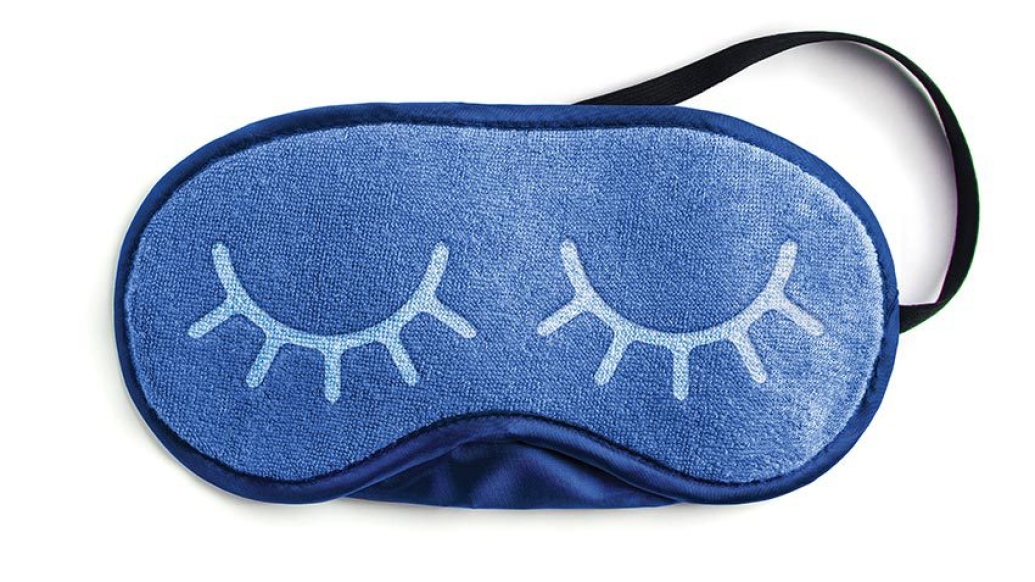An oncology physician gives 5 ideas to try.
12:08 PM
Author |

Let's start with the bad news: Sean Smith, M.D., the medical director of the University of Michigan Health Rogel Cancer Center's Cancer Rehabilitation program, estimates that between one-third and half of patients he sees in his clinic are dealing with a sleep-related problem.
Psychological distress and fatigue often lead to poor sleep habits and keep those with a history of cancer from snoozing soundly, while other wake up regularly because of pain or develop sleep apnea.
The good news is that all of these issues are treatable, and care providers can help you find solutions to your sleep woes.
1. Medication
The medications that Smith's team typically uses to address insomnia are trazodone and mirtazapine. These can send patients into a deep, restorative sleep. He frequently has to explain why patients shouldn't use certain sleep drugs, which may be creating more problems than they solve.
Take melatonin; there's little evidence about the optimal dose, so it's tough for providers to tell you how to take it, and ongoing use can actually disrupt your sleep. So only turn to this well-known supplement to occasionally reset your clock, unless your provider recommends it for your specific problems.
SEE ALSO: Can Lack of Sleep Cause Heartburn - Sleep Disorders & GERD Symptoms
2. Exercise
Exercise can be a Catch-22 for cancer survivors when it comes to sleep, Smith says. "If you don't sleep, you're not going to exercise and if you don't exercise, you're not going to sleep well," Smith said. "So you have to sort of break the cycle."
His prescription involves 45 minutes of aerobic exercise, the kind that gets your heart rate up and makes you sweat, three days a week.
SEE ALSO: How the Timing of Light Exposure Could Be Affecting Your Health
3. Sleep hygiene
Cancer survivors who manage chronic fatigue often take naps during the day, which can leave the brain confused about when it's time to sleep. The following methods to optimize sleep hygiene can reduce such daytime fogginess over time: create a regular bedtime routine, limit naps and keep them short, and avoid screens before bed (or invest in a pair of blue-light blocking glasses if you watch screens in the evening).
If you don't sleep, you're not going to exercise and if you don't exercise, you're not going to sleep well. So you have to sort of break the cycle.Sean Smith, M.D.
Smith also recommends buying a comfortable pillow and creating a calm environment in your bedroom.
4. Counseling
Many sleep issues for cancer survivors can be traced to anxiety and sometimes even untreated post-traumatic stress disorder from having been diagnosed with cancer, Smith says.
He recommends patients find a professional counselor to talk to — or a team-based program like the one at U-M, which has a social work team that includes rehabilitation psychologists and psychiatrists who are experts at helping patients work through their unprocessed stress and fear around the cancer experience that may be keeping them from a restful night.
5. Speaking up
Unless you've sought out a sleep medicine clinic, there's not always a clear provider with whom to discuss sleep issues — but, in fact, you can bring up the problem to anyone on your medical team, and they can get you the help you need.
"You might be talking to your medical oncologist about whether your cancer is still in remission, or your primary care physician about your blood pressure, and or to me for your shoulder pain and not thinking that any of us will discuss sleep," Smith said. "But hopefully patients can read this and speak up, knowing that we're all here to help."
Get Help
Rogel Cancer Rehabilitation Program, a team-based program to help people get back on track before, during and after cancer treatment.
U-M Sleep Disorders Center, provides evaluation and treatment of sleep disorders by addressing behavioral, psychological, and physiological factors.

Explore a variety of healthcare news & stories by visiting the Health Lab home page for more articles.

Department of Communication at Michigan Medicine
Want top health & research news weekly? Sign up for Health Lab’s newsletters today!





